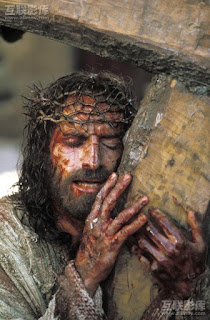GOOD FRIDAY IS A CELEBRATION OF GOD’S LOVE FOR HUMANITY
Homily for Good Friday, Year B
Fr. Ugochukwu Ugwoke, ISch
Scripture Reading: Isaiah 52:13-53-12; Hebrews 4:14-16; 5:7-9); John 18:1-19:42
Today is Good Friday, the day we remember the passion, crucifixion and death of Jesus on the cross for our salvation. On this day, we stand at the foot of the cross, beholding the agony of our Lord Jesus Christ as he willingly offered himself as a sacrifice for the sins of the world. When you take a look at all that happened to Jesus on this day, the brutal arrest, scourging, flogging, humiliation, and the nailing on the cross, you will begin to ask yourself, what is even good about Good Friday. Dear friend, Good Friday is called good not because of what was done to Jesus Christ but because of what Jesus Christ himself did for us on this day.
On the cross, Jesus, the Suffering Servant showed us the depth of God’s love for humanity and today’s readings invite us to enter into the mystery of Christ’s passion and death, to contemplate the depths of his love for us, and to reflect on the meaning of his sacrifice (Isaiah 52:13-53-12; Hebrews 4:14-16; 5:7-9); John 18:1-19:42). The readings reveal to us the extent to which God is willing to go to reconcile us to himself. In Jesus’ passion and death, we see the perfect union of love and sacrifice, as he willingly offered himself as the Lamb of God who takes away the sins of the world.
But the cross is more than just a symbol of Jesus’ love for us - it is also a call to discipleship. Jesus himself tells us, “Whoever wishes to come after me must deny himself, take up his cross, and follow me” (Mark 8:34). As followers of Christ, we are called to embrace the cross in our own lives - not as a burden to be avoided, but as a pathway to true freedom and redemption. It is through the cross that we find hope in the midst of suffering, light in the midst of darkness, and life in the midst of death. Let us unite our sufferings to his, trusting that through the cross, God’s power is made perfect in weakness, and that through his death, we find new life.
In his final moments on Calvary, Jesus not only endured unimaginable physical pain and suffering, but he also bore the weight of humanity's sin and brokenness, offering himself as a sacrifice for the salvation of all. It is a remarkable paradox that the victim, Jesus Christ, willingly laid down his life for his victimizers – those who mocked him, spat upon him, and ultimately nailed him to the cross. In the face of such cruelty and injustice, Jesus responded with boundless love and forgiveness, praying, “Father, forgive them, for they know not what they do” (Luke 23:34). His love knew no bounds, reaching out even to those who had rejected and betrayed him.
In response to the love that Jesus showed us by dying for us on the cross, we are called to live lives of gratitude, humility, and selflessness. This profound act of sacrificial love challenges us to examine our own hearts and attitudes towards those who may have wronged us or caused us harm. Are we willing to extend forgiveness and mercy, even to those who have hurt us deeply? Are we able to imitate Christ’s example of love, which transcends all boundaries and embraces even the unlovable? Just as Jesus’ death on the cross was for the redemption of all humanity, so too are we called to be instruments of God’s love and mercy in the world, bringing hope and healing to all who are in need.



'But the cross is more than just a symbol of Jesus’ love for us - it is also a call to discipleship.'
ReplyDeleteIt occurred to me that I often forget that the Cross is a symbol of Love mainly because of how it is used in modern language to describe suffering. Thank you for highlighting that.
Amen
ReplyDeleteSo I cherished the old rugged cross, the emblem of ❤️ .
ReplyDelete